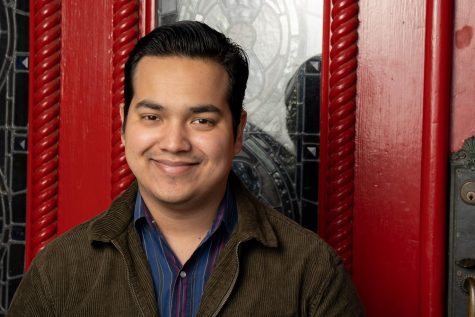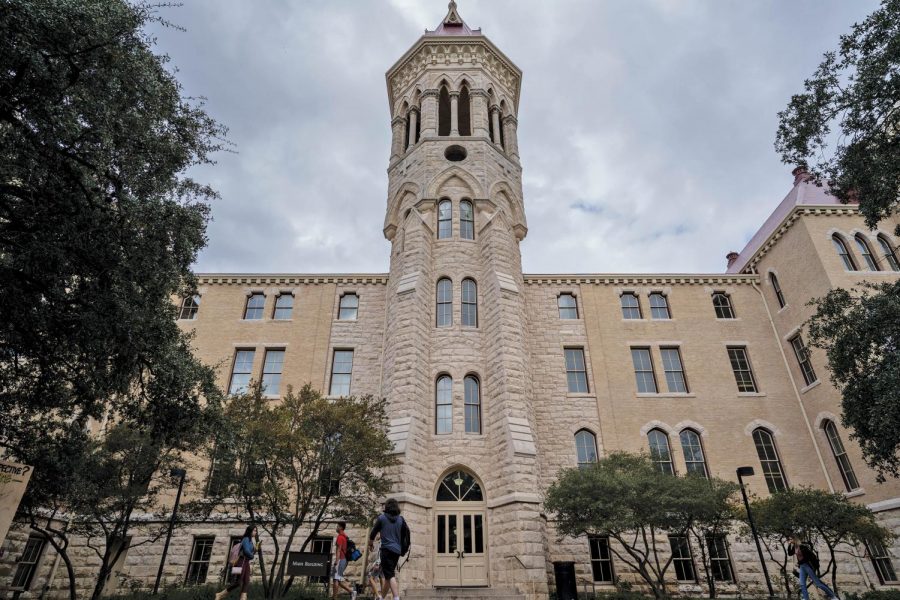Administration responds to report alleging unfair termination of tenured professors
The American Association of University Professors (AAUP) report contends that the St.Edward’s University administration has contributed to the creation of a “climate of fear” among professors
The American Association of University Professors (AAUP) released a report last month concerning St. Edward’s practices towards tenured professors and the climate of academic freedom across the university. The report investigated the termination of two tenured track communication professors that were let go last January for “reflecting a continued disrespect and disregard for the mission and goals of the university.” Additionally, a professor in her fifth year of service was not renewed in her tenure track contract.
The report states that both tenured track communication professors were “never given an explanation or specific examples of these allegations,” and were unjustly fired as well as “bullied” and “intimidated,” by university faculty and administration leading up to their termination.
“According to faculty sources, the climate for academic freedom at St. Edward’s has been deteriorating for a number of years and now appears to be at its lowest point. It is characterized, above all else, by fear,” the report states.
The AAUP is a nonprofit membership association of faculty and other academic professionals across the U.S. The AAUP authorized their investigation because they claim that the St. Edward’s administration, in acting against the three professors, appears to have, “done so in a manner sharply at odds with Association-recommended procedural standards and for reasons that may have violated their academic freedom,” according to a write-up on the AAUP website.
“As far as I know there has been no formal affiliation with AAUP [in the past 16 years], we’re not unionized, so they don’t really have jurisdiction over us, but there are faculty who are very interested in AAUP and have formed a chapter,” Faculty Senate President Lorelei Ortiz said.
Ortiz as well as other faculty members and university President George E. Martin were directly mentioned in the report as being, “weak,” and, “remote from the faculty.” Both Martin and Ortiz have responded to the report and commented on the accuracy of the report as a whole: “The AAUP report is based on interviews with at most 15 people (some of whom no longer work for the university) and maligns the great work of almost 500 faculty members and imposes its own agenda on our university,” Martin said in a letter to university faculty.
Additionally, Ortiz authored a letter explaining this issue based on observations and private conversations with faculty who contacted her within her role as Faculty Senate president throughout the last year. She stated that it was her intention to remain neutral “out of respect for the faculty appeals processes that were taking place and in order to protect the privacy of all involved.” However, she added that the nature these allegations in the AAUP report required, “a robust and unequivocal response.”
Ortiz stated that the AAUP report “acknowledges receipt of the faculty statements.” However she argued that nowhere in the report was there any mention of the “concerns, observations, and personal experiences” shared by St. Edward’s faculty regarding the “prolonged harassment, intimidation, and bullying behavior” of the terminated communication professors towards their colleagues in the Communication department.In fact, a group of five associate professors of communication authored a response to the AAUP report stating that they ”find the report very partisan in its amplification of the voices of an outspoken minority of disgruntled former and current faculty members (which certainly exists in all institutions.)”
Nevertheless, Ortiz hopes that the faculty can grow from this report and learn from it. She believes that the faculty should have the “right to choose and design our practices” and that they not be imposed by anyone else.
“Even though I put that statement forward, I still feel it’s really important to include everyone’s voice. Even if I don’t agree with them, I want everyone to feel safe and comfortable sharing their thoughts,” Ortiz said.
The faculty senate hopes to host a collegium discussing their thoughts about the report and invites faculty and staff alike to share their experiences and offer new viewpoints to how the university can handle situations such as these.
“Certainly I think we can look at some of the things the AAUP has in terms of processes or procedures and if we want to adopt some of them,” Ortiz stated. “If the faculty broadly wants to support that then that’s something that can be considered.”

I'm Matthew San Martin - A senior Communication major with a focus in Digital Media and Journalism and Editor-in-Chief of Hilltop Views. I served as News...











